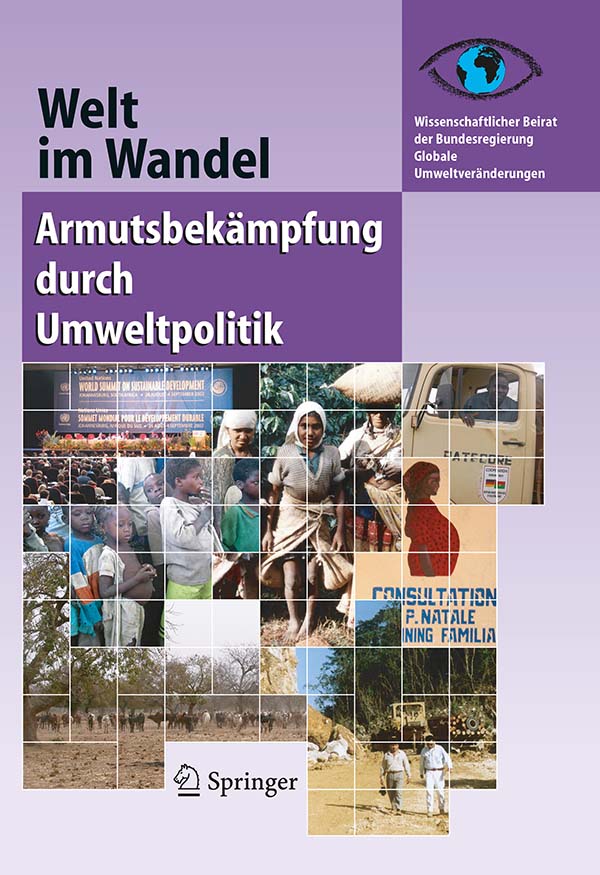
World in Transition – Fighting Poverty through Environmental Policy

At the start of the 21st century, fighting poverty and protecting the environment are two of the most urgent challenges facing the international community. Narrowing the massive disparities in the satisfaction of basic needs and distribution of prosperity must be a primary objective.
Overview
Extreme poverty, such as that prevailing above all in sub-Saharan Africa and South Asia, is the most obvious manifestation of the untenable imbalance in the world's social system.
The recommendations for action set out in this report are based on an analysis of the systemic links between poverty (income poverty, disease, malnutrition, and lack of education, social stability and social capital) and environmental changes (climate change, lack of water resources, water pollution, soil degradation, loss of biological diversity and resources, and air pollution). The manifestations of and interactions between poverty and environmental problems are investigated in their various forms. This type of integrated analysis is nothing new; what is new, however, is the consistent linking of a holistic approach with the following key questions: which institutional arrangements offer ways of coping with these problems, and where must gaps be closed? To this end, WBGU has evaluated major international political processes and developed recommendations on policy coherence. It also presents various recommendations on further research to identify the strategic gaps in theoretical and practical knowledge.
More about this topic
Voices to this Report
„With its interdisciplinary approach, providing a complex and systematic analysis of the poverty-environment nexus, WBGU's latest report breaks new ground. Indira Gandhi's old, convenient maxim was 'Poverty is the biggest polluter'. Put forward at the 1972 UN Conference on the Human Environment in Stockholm, it has been sorely misused ever since to override environmental precaution and prioritize economic development strategies instead. The new WBGU report maps out a way to shape a coherent environment and development policy. This report revitalizes the Rio spirit and gives it a robust scientific base“
Prof Dr Ernst Ulrich von Weizsäcker, Member of the German Bundestag 1998-2005.
PDF Downloads
Welt im Wandel – Armutsbekämpfung durch Umweltpolitik
- Download: Vollversion (PDF, 5 MB)
- Download: Kurzfassung (PDF, 1 MB)
World in Transition – Fighting Poverty through Environmental Policy
- Download: Full Version (PDF, 5 MB)
- Download: Summary (PDF, 1 MB)
Commissioned Expert's Studies
- Download: Beese: Ernährungssicherung als Produktions- bzw. Verteilungsproblem. (PDF, 2 MB)
- Download: Biermann, Bauer: UNEP und UNDP. (PDF, 1 MB)
- Download: Brühl: Funktionsweise und Effektivität der GEF. (PDF, 3 MB)
- Download: Eberlei: Umweltrelevante Aspekte in Poverty Reduction Strategies. (PDF, 1 MB)
- Download: Petschel-Held, Sietz, Walkenhorst, Walther, Brooks: Armut und Umwelt in Burkina Faso und NO-Brasilien: Entwicklung und Anwendung eines Matrixkonzepts zur Beschreibung differenzieller Vulnerabilitäten gegenüber dem globalen Wandel. (PDF, 5 MB)
- Download: Proksch: Bedeutung von Naturstoffen für die Pharmazie. (PDF, 1 MB)
- Download: Stoll: Armutsbekämpfung und Zugang zu genetischen Ressourcen. (PDF, 1 MB)